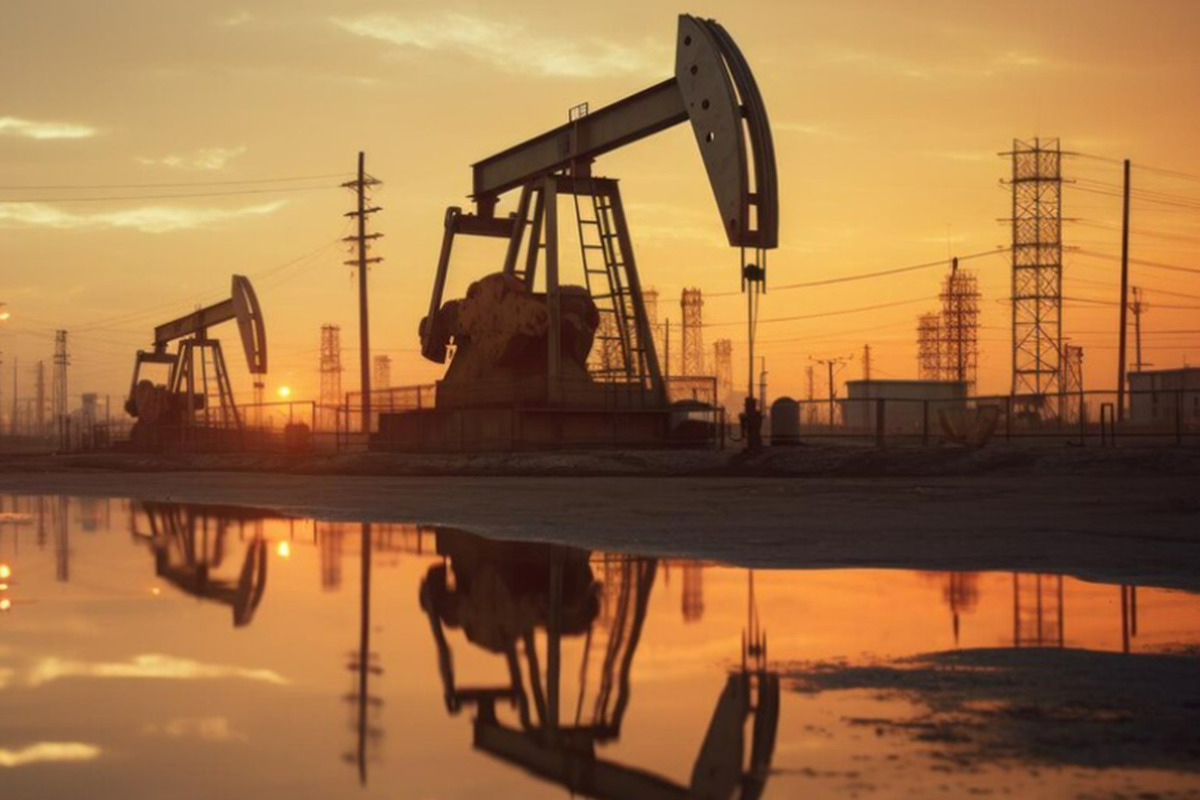The European Union has found a replacement as a buyer of Russian oil products
[ad_1]

A holy place is never empty: in 2023, Russia will completely replace the lost profits from the supply of petroleum products to the EU countries. They were sold for $32.2 billion to four major buyers – Turkey, China, India and Brazil. But the question is: how equivalent is this market alternative under conditions of unrelenting sanctions pressure, when interbank payments for trade transactions are difficult, and logistics are becoming increasingly inconvenient, unpredictable and costly for Russia?
Before the introduction of sanctions, the EU purchased oil products from the Russian Federation for an average of $24.3 billion per year, and last year – only $3.4 billion. At the same time, four friendly countries – Turkey, China, India and Brazil – increased purchases by 5 .5 times compared to the average in 2019-2022, to $28.8 billion, RIA Novosti experts calculated. The agency used data from the statistical services of these states, but statistics for 2022 were not included in the calculations due to abnormal fluctuations in costs and supply volumes.
Turkey turned out to be the main buyer: Russia supplied it with oil products worth $11.8 billion (versus $3.4 billion on average for 2019-2021). Next come China, which increased purchase volumes by 6.7 times (to $7.3 billion), Brazil (24 times, to $5.3 billion), and India (almost 9 times, to $4.5 billion).
According to the Federal Customs Service and Rosstat, in 2021 Russia exported 144.5 million tons of petroleum products (fuel oil, gas oil, naphtha, gasoline) for a total amount of $69.9 billion. Non-CIS countries accounted for more than 90% of the supplied volume. The main buyers were: the Netherlands ($14.7 billion), USA ($5 billion), China ($3.9 billion), Turkey ($3.8 billion), Republic of Korea ($3.1 billion), Germany ($2.4 billion) , France ($2.2 billion), Malta ($2.2 billion), Belgium ($2.2 billion), Greece ($2.1 billion). The EU countries accounted for 51% of all Russian exports. At the end of November 2022, Brussels approved an embargo on maritime supplies of petroleum products from the Russian Federation from February 5, 2023.
“Refocusing on the countries of Asia, the Middle East and South America is a forced step due to the severance of trade and economic ties with Europe,” says Alexander Shneiderman, head of the sales and customer support department at Alfa-Forex. – At the same time, the equivalence of sales markets is a big question. The European one, all other things being equal, is more premium and convenient in terms of logistics: over the years of cooperation, thousands of kilometers of oil pipelines have been built, which significantly reduce the cost of delivering raw materials to refineries.”
With alternative markets, things are frankly worse: connections initially had to be established in a hurry (suspending production is an unaffordable “luxury”), and today the problem of tortuous and expensive logistics is also compounded by all sorts of obstacles from the West. Thus, Shneiderman notes, interbank payments are difficult: the situation has to be settled manually with almost every delivery. The currency imbalance in trade with India is growing: a huge mass of useless rupees has accumulated on the balance sheets of Russian companies. Whereas in settlements with the EU, euros and dollars prevailed – world reserve currencies that can be used everywhere: both for business transactions and for circulation within the country.
“Indeed, the lost revenues from supplies to the EU were covered with a margin,” says Artem Deev, head of the analytical department at Amarkets. – At the same time, it is too early to say that the issue of exporting petroleum products is closed for Russia once and for all. If supplies to the European region were, as a rule, under long-term contracts, then the situation with the BRICS camp is unpredictable. This applies not only to oil products: China, for example, is simultaneously investing in the construction of a gas pipeline from Turkmenistan. It will be difficult for us to compete with this project.”
Today, in trade with friendly countries, a scheme has developed that is beneficial to all participants and is in demand by them. As Igor Yushkov, an expert at the Financial University under the Government of the Russian Federation, explains, Turkey (and other buyers) actually re-exports Russian petroleum products: they formally keep them, but actually resell them to Europe, mainly to the countries of the Balkan region. Supplies go there in huge volumes and at world market prices, although the goods were initially purchased from Russia at a discount. Since such practices are not prohibited by sanctions, Türkiye is beyond criticism and suspicion. As for the cost of Russian oil products, the discount on them has never been as great as on Russian oil: there in 2022 and early 2023 the jumps reached $35 for each barrel.
“For Russia, the convenience is that the main customer is close by,” says MK’s interlocutor. – Accordingly, it doesn’t take a lot of tankers or time: within 24 hours, it was loaded from Novorossiysk, delivered to Turkey, and returned back. The Europeans are also not against it: why break the established pattern if sanctions are not formally violated, and there is a major supplier nearby?”
The question is not whether Russia will be able to sell its oil products, but what the prices will be. So far, prices have been kept at a good level, sums up Yushkov. Of course, under sanctions there are financial risks: how to pay, in what currency, through which banks, will payments be received, what costs will this result in? But all these questions apply equally to crude oil, wheat and any other categories of Russian exports.
[ad_2]
Source link






